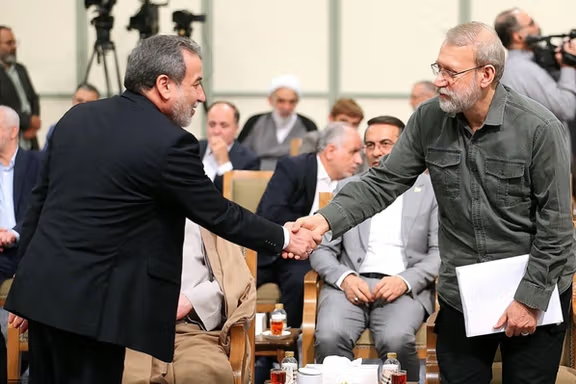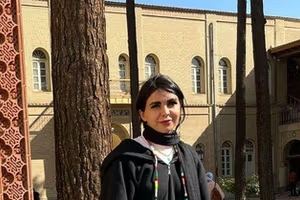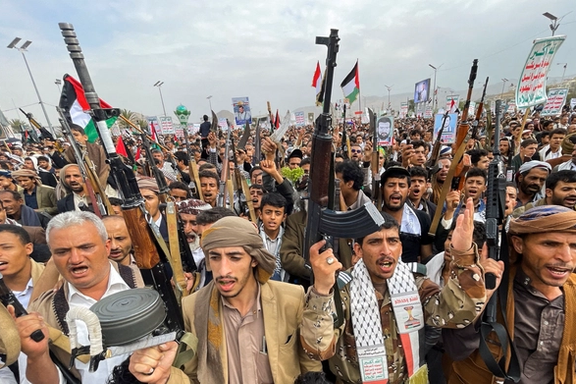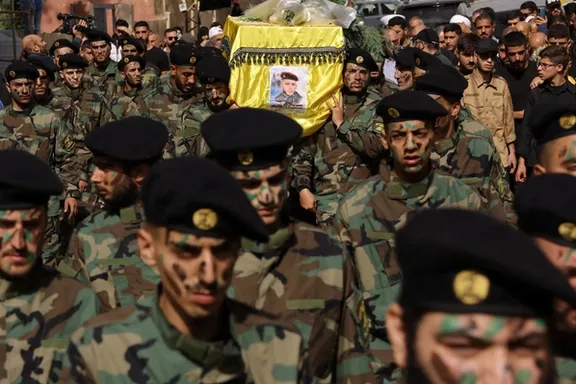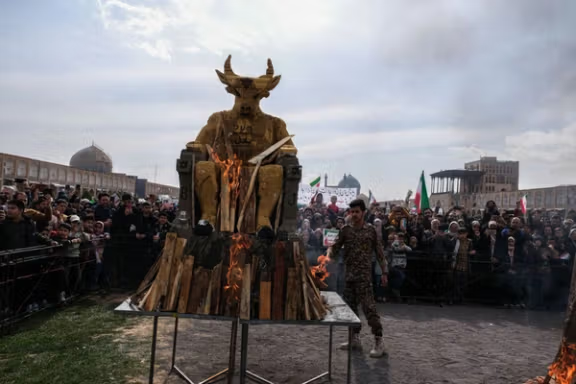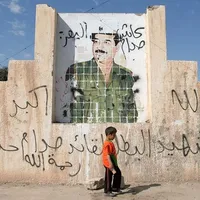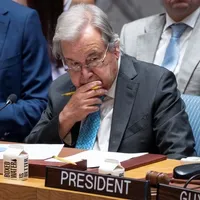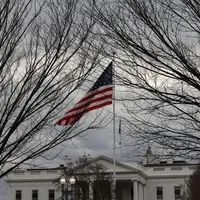The Times first revealed that the United States had organized a chartered deportation flight sending 54 Iranians from Louisiana to Tehran after months of negotiations with Iranian officials, marking the first coordinated operation of its kind.
The report on Tuesday said deportees were shackled and forcibly placed on the plane, some alleging abuse during transfers, and that Iran’s Interests Section in Washington helped verify identities and issue travel documents for the flight.
Among those on board was 34-year-old Mehrdad Dalir, a political activist from Mashhad, who said he pleaded with US officers not to send him back out of fear persecution by the Islamic Republic. Dalir said he was forcibly dragged onto the flight by US authorities.
“They told me, ‘You are either getting on the plane on your own, or we will tie you and send you back,’” the newspaper quoted him as saying.
The flight to Iran took nearly 50 hours and stopped in Puerto Rico, Cairo and Doha. Deportees were all shackled and handcuffed for the whole flight to Doha, the Times reported, adding that The Department of Homeland Security described the measure as essential to the safety of the passengers and staff.
Another deportee, identified only as A.A., who said he was denied a fair hearing and fears for his safety in Iran.
“They used electric tasers to pacify me, and when that didn’t work they put me and another guy in straight jackets and tied us to our seats,” A.A. told the newspaper referring to Qatari security forces on the last leg of their journey from Doha to Tehran.
Qatar, the New York Times cited a Qatari official as saying it did not receive any requests for asylum, and the detainees were transferred in full compliance with international law and security protocols.
A.A.'s lawyer, Ali Herischi, told Iran International in October that the deportees’ belongings, including files, evidence, and cell phones, were handed to Iranian authorities.
“That’s very dangerous,” said Herischi, a Maryland-based immigration lawyer.
Herischi said several deportees have since been contacted by Iran’s Revolutionary Guards intelligence branch for questioning, while at least three have had their passports confiscated. One of his clients, a Christian convert, remains in hiding, and another, a political dissident, has been forced to move repeatedly to avoid arrest.
The Times also reported that Iranian officials, led by Abolfazl Mehrabadi, head of Iran’s Interests' Section in Washington, visited US detention facilities ahead of the flight to verify the deportees’ identities and issue travel documents.
The Department of Homeland Security told the Times that all 54 Iranians on the flight had final removal orders and were given due process. Dalir and A.A. said they were denied fair hearings and that returning to Iran places them in serious danger.
Earlier this year, Iran International reported on similar deportations of Iranian converts and dissidents to Costa Rica and Panama, where many remain stranded.
Rights groups say mass deportations to Iran, a country with a record of persecuting political and religious minorities, could amount to a breach of US asylum obligations.
The New York Times said both Mehrdad Dalir and A.A. had entered the United States illegally and were later ordered deported after their asylum claims were denied.
The report said it obtained government records for both men confirming details of their detention and deportation, and reviewed written statements collected by Dalir’s father from seven other passengers who said they were forcibly returned to Iran, along with interviews with both men, their families, lawyers and other Iranians in US custody familiar with the case. The report said it obtained government records for both men confirming their detention and deportation. It also reviewed written statements collected by Dalir’s father from seven other passengers who said they were forcibly returned to Iran.
Tricia McLaughlin, a spokeswoman for the Department of Homeland Security, was cited as saying that of the 54 Iranians deported, 23 were linked to terrorism, 7 were on a terror watch list and 5 others were involved in human trafficking.
The report said the two men the newspaper interviewed were not among those named as involved in terrorism or fraud.
Iran’s foreign ministry says more than 400 Iranians in US custody face deportation, with additional flights under discussion, the Times reported.
